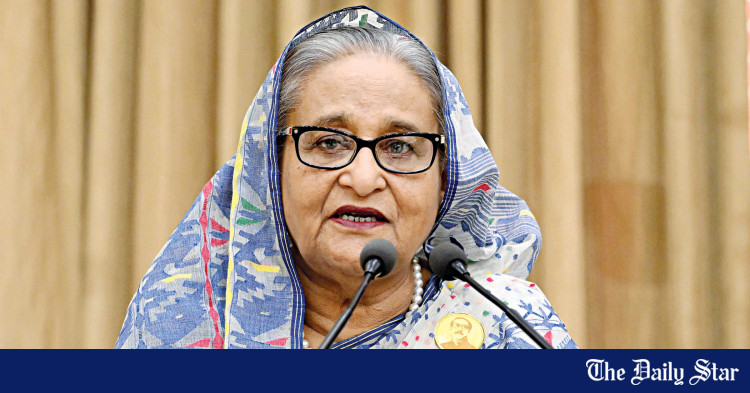The prime minister of Bangladesh has fled the country for a "safer place" amid violent protests demanding her resignation.
Thousands of Bangladeshi protesters stormed the palace of Sheikh Hasina in the capital of Dhaka on Monday.
Local network Channel 24 broadcast images of crowds running into the premier's official residence in the capital, waving to the camera as they celebrated.
@Bilal9 @Old School @MuHayMin @Saif @LeonBlack08 @Vikings @Samad11 @Damien Dehorn @Hendrix02
Continue here.
Continuation of the thread: - In Bangladesh, A Violent 'Student Revolution' is on بنگلہ دیش میں انقلاب
- In Bangladesh, A Violent 'Student Revolution' is on بنگلہ دیش میں انقلاب
Thousands of Bangladeshi protesters stormed the palace of Sheikh Hasina in the capital of Dhaka on Monday.
Local network Channel 24 broadcast images of crowds running into the premier's official residence in the capital, waving to the camera as they celebrated.
@Bilal9 @Old School @MuHayMin @Saif @LeonBlack08 @Vikings @Samad11 @Damien Dehorn @Hendrix02
Continue here.
Continuation of the thread:








